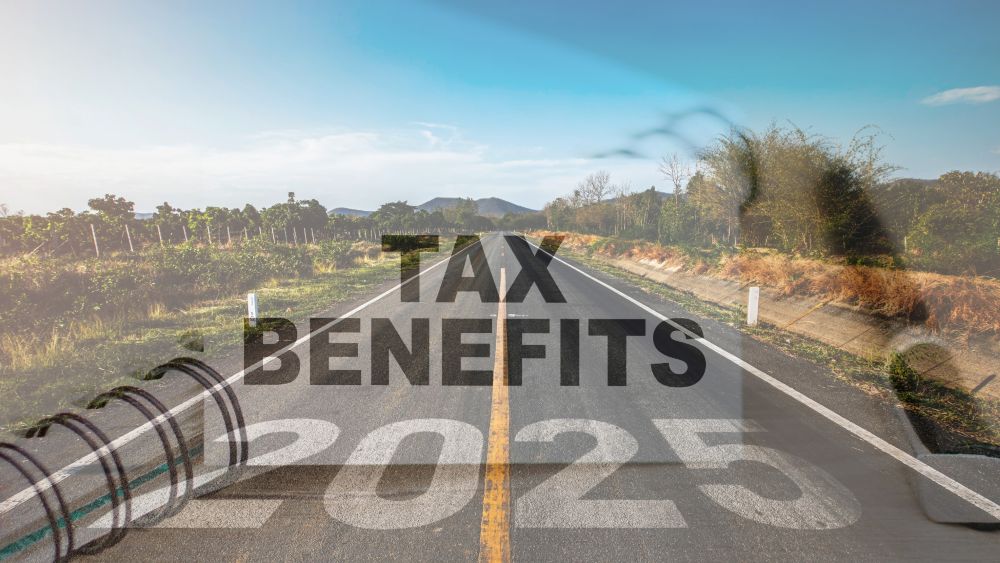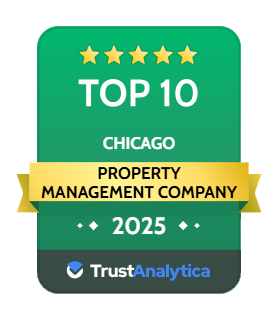Could now actually be a smart time to buy a rental property?
It’s a bold question—especially when your feed is filled with housing crash predictions and market panic. But nuance matters, even if the algorithm doesn’t like it. As seasoned investors know, every market brings both risks and opportunities.
Trump’s proposed tax plan—formally named the “One Big Beautiful Bill Act” (OBBBA)—is gaining traction in Congress. If passed, it could mean serious upside for landlords and investors. But will it actually revive the real estate market? And how should you adjust your investment strategy in 2025?
Let’s break down what’s in the bill, why it matters for rental property owners, and how you can use this to your advantage in Chicago’s evolving rental landscape.
Why Trump’s Tax Plan Could Matter to Landlords

At its core, OBBBA aims to lock in and expand the investor-friendly cuts passed in 2017. Here are some highlights:
Rental Property Tax Deductions
A 23% deduction for pass-through income (great for landlords using LLCs or S-Corps)
Ordinary and Necessary Expenses Covered
Temporary 100% expensing for qualified improvements and assets
Rental Property Expense Tax Exemption
Increased estate tax exemption to $15 million
Permanent reductions in income and estate taxes
Deductible Rental Expenses
Expanded standard deductions and child tax credits
For landlords, this could mean keeping more of, or maximizing your rental income, reducing tax liability on capital improvements, and setting up better long-term estate planning.
3 Real Estate Tax Benefits to Watch in 2025

1. Boosted Rental Property Deduction
If you structure your rental property business properly, the 23% QBI deduction can significantly reduce your taxable income. Landlords may also deduct operating expenses—property management fees, maintenance, insurance, interest, legal and accounting costs—provided they’re ordinary and necessary actual expenses, or business expenses.
2. Faster Depreciation, Bigger Returns on Expenses Paid
Under OBBBA, property owners could immediately expense capital improvements. For landlords investing in value-add rentals or multifamily rehabs, this could improve your year-one cash flow and reduce taxable income.
3. Long-Term Estate and 1031 Exchange Benefits
Higher estate tax exemptions give landlords more flexibility in passing on rental portfolios—something especially helpful for family investors. Accurate documentation of fair market value and financial records will be key.
Commonly Missed Landlord Tax Breaks

Even experienced landlords overlook valuable tax breaks. These often include:
Professional Services: CPA fees, legal consultation, property management, and bookkeeping—all fully deductible.
Maintenance & Repairs: Routine upkeep, emergency fixes, and property improvements reduce taxable income.
Travel & Transportation: Site visits and mileage for rental-related tasks may be deductible.
Pro tip from Property Managers:
Keep detailed records. The IRS may require supporting documentation for all deductions, and clean books also help you assess profitability and qualify for financing.
What Chicago Investors Should Do Now

If you’re investing in Chicago multi-family properties, these tax changes could align perfectly with the current market conditions:
Inventory is rising
Sellers are more flexible
Rents are holding strong across many Chicago neighborhoods
More buyers are sitting on the sidelines, giving you a competitive edge
The result? The rental forecast may be one of the best times in recent years to expand your rental portfolio or rental business, especially for 2-flat and 3-flat investments in Chicago.
7 Smart Moves for Investors in 2025

Inspired by top real estate analysts and investor playbooks, here are seven tactical shifts you can make this year:
Stick to the Fundamentals – Great locations, proven rent comps, and desirable layouts still win.
Buy for Cash Flow – Don’t gamble on appreciation. Make sure deals work on day one.
Negotiate Hard – With more supply and softer demand, you can write better offers.
Model Tax Savings – Work with a tax pro to understand how deductions and depreciation impact your bottom line.
Stay Liquid – Transitional markets reward flexibility.
Play the Long Game – Chicago rental property investing still offers strong long-term upside.
Hire the Right Property Management Company – With ever-changing laws and tenant expectations, working with a team like Landmark Property Management can reduce risk and improve profitability.
Final Thoughts: A New Real Estate Cycle?

Will this tax bill single-handedly revive the real estate market? Maybe not. But when combined with favorable conditions and smart strategy, 2025 could be a standout year for rental property investors.
Is it Time to Consider Property Management?

At Landmark Property Management, we help landlords across Chicago adapt to new laws, maximize rental income, and grow their portfolios with confidence. Reach out to us today to share our experience and let us help you...
Avoid Unnecessary Management Fees
Make sure the company offers straightforward pricing with no surprise add-ons or hidden costs.
Collect Lease Payments Promptly
Check that the systems ensure consistent rent collection and quick resolution of payment issues.
Avoid Costly Legal Fees
Stay compliant with evolving landlord-tenant laws and local regulations.
Keep Operating Expenses Manageable
From routine maintenance to vendor oversight, we help you control costs without cutting corners on your commercial or residential rental property.






.png)


